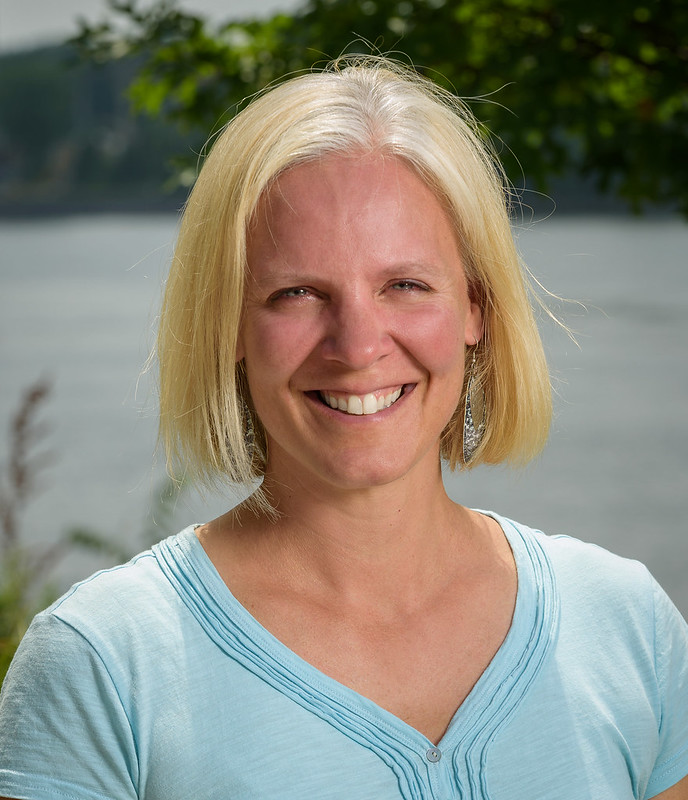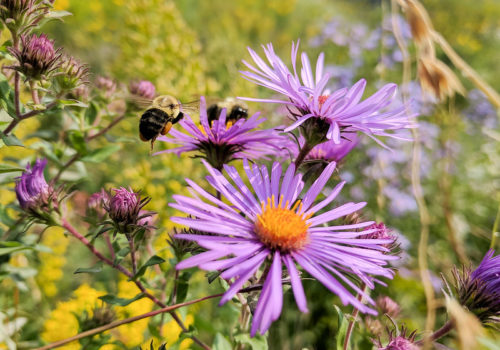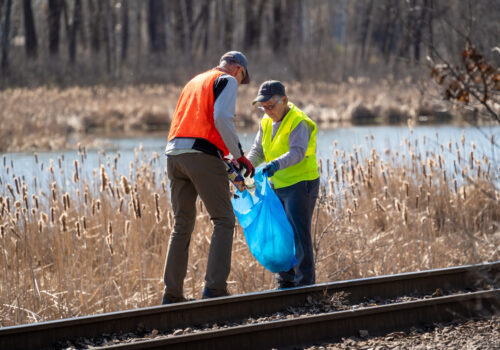News / September 25, 2017
Master Water Stewards program develops community leaders for clean water


Master Water Stewards Sam Talbot and Marilyn Jones recently took advantage of a National Night Out get-together in the Seward neighborhood in south Minneapolis to engage and educate the community about clean water. After socializing and sharing a meal, the stewards worked together with neighbors to clean up trash and stencil several of the neighborhood’s storm drains as a reminder for everyone that they drain directly to the river.
Their efforts were captured in this short video:
With the intention of leading an activity that would have a long-term impact on their community, Jones and Talbot were excited to help their neighbors take ownership of the storm drains by officially “adopting” them and pledging to keep them clean. They hope that by raising awareness about how trash and pollutants on the ground end up in the river, community members will be more actively involved in protecting water quality.
For Jones and Talbot, this event was the final component of their capstone project, a culminating experience at the end of their year-long Master Water Stewards training. In addition to doing the education and outreach portion of their project on National Night Out, they also installed a rain garden and some rainbarrels on a neighbor’s property in an effort to greatly reduce the amount of stormwater flowing off of that property and into the storm drains.
The Master Water Stewards Program
Freshwater Society developed the Master Water Stewards program in 2013 to equip citizens with the knowledge and skills needed to help improve water quality at the grassroots level. The Mississippi Watershed Management Organization is now in its second year of participation in the program, sponsoring and supporting training for stewards in our watershed.
After seven months of online and in-person meetings covering a variety of stormwater management topics, Master Water Stewards set off into their communities to develop and implement a capstone project. These projects give the Stewards the opportunity to put all of their classroom learning into action.
Capstone projects consist of two components: an infiltration piece and an educational outreach piece. Infiltration projects are physical installations that help slow down stormwater runoff, encourage it to sink into the soil and filter pollutants. In addition to installing rain gardens, some stewards worked with installing permeable pavements, redirecting downspouts, and capturing and storing stormwater for reuse.
For the education and outreach portion, stewards think about how to engage others in learning about and acting for clean water. This is a key piece of the program since, once graduated, stewards will act as ambassadors across our watershed, talking with neighbors and helping to organize and direct people toward activities and resources that benefit our water quality.
Northeast Median Project
Instead of doing an infiltration project separately from an education and outreach project, Master Water Stewards Linnea Goderstad and Melissa Burton decided to weave both pieces together for their capstone project.
After large trees were removed from the medians on Goderstad’s Northeast Minneapolis street, the ground was left mostly bare around the small trees that were planted to replace them. Recognizing an opportunity to help infiltrate some stormwater, Goderstad and Burton worked with the St. Anthony West Neighborhood Organization to secure permission from the City of Minneapolis to do native plantings in the medians. These native plants provide a stormwater benefit by directing water into the soil with their long root systems (in addition to an aesthetic benefit).
Goderstad and Burton organized a planting day in mid-July, and a few dozen neighbors turned out to learn about the project and then help do the planting. Many of the neighbors expressed their gratitude to the stewards for organizing the event, and for getting everyone involved in beautifying their street and raising awareness about how to help protect the river.
In an effort to support the adoption of clean, water-friendly behaviors, the stewards sent participants home with a native plant to put in their own yards. They hope that this single plant will be the beginning of larger native plantings in yards throughout the neighborhood, which could ultimately reduce the amount of polluted runoff entering local storm drains.
Learn More
This week, we released a new video highlighting the work of some of our local Master Water Stewards. The video, which you can watch below (or on our YouTube channel), is a good demonstration of the level of engagement of our stewards in their communities, and illustrates the potential impact of the program to engage neighborhoods across our watershed and throughout the Twin Cities.
We’re proud of the work our stewards our doing, and we look forward to expanding the Master Water Stewards community. Applications are being accepted now for the next cohort of Master Water Stewards, which will start at the MWMO in October. Please visit masterwaterstewards.org for more program information and to apply.





